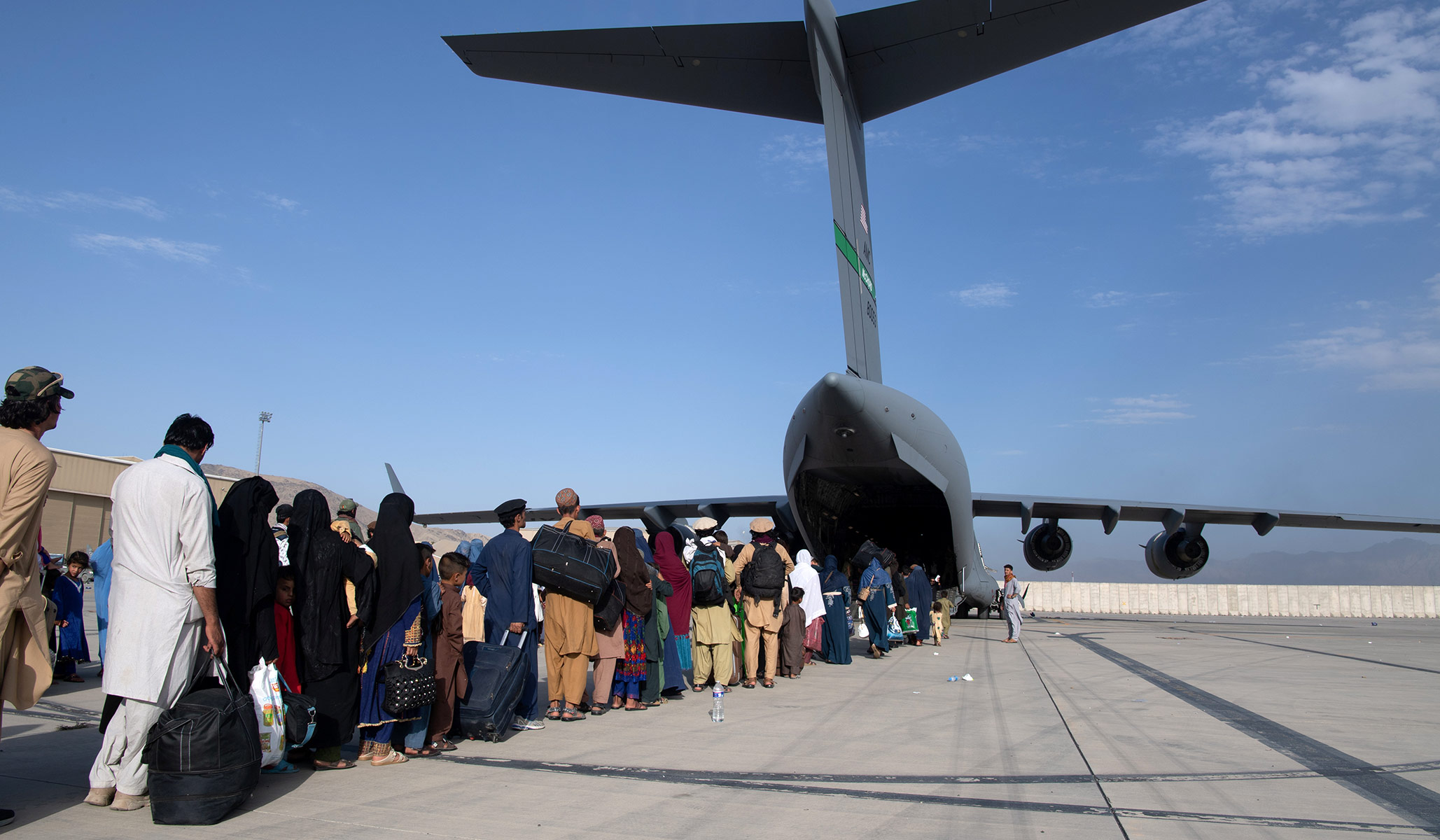
As the frenetic U.S. effort to evacuate Americans and allied Afghans from Kabul approaches the August 31 deadline set by President Biden, a former senior State Department official is alleging that the Biden administration moved to disband a unit that could’ve played a significant role in the evacuation effort.
That team, called Operational Medicine, OpMed for short, is housed within State’s Bureau of Medical Services. Until Vanity Fair published a deep dive on the group this spring, it was virtually unknown to the public. “You tend to see the missions [in the press]. You just don’t see the unit,” one State Department official told Vanity Fair. Some of those headline-grabbing operations: evacuating 800 Americans from Wuhan at the outset of the COVID pandemic, assisting in the repatriation of nearly 100,000 more, and delivering nearly 200,000 vaccine doses to U.S. diplomats around the world this year.
Accordingly, in April, Secretary of State Antony Blinken called OpMed “a lifeline for the Department of State and the American people.” But Blinken’s team has worked to disband this low-profile, yet vastly effective expeditionary group, and OpMed has not played a direct role in evacuating the Afghan capital, according to Mary Kissel, who served as senior adviser to former secretary of state Mike Pompeo.
“The Biden administration and some of the career medical team at the State Department just decided they didn’t like this group and they wanted them gone, and so they advised the management at the State Department to put it on ice, and that’s what they have done,” said Kissel, executive vice president and senior policy advisor at Stephens Inc., on the John Batchelor Show. She added that most of the unit’s 64 members are looking for new jobs; as waves of terror unfurl in Afghanistan, and the Biden administration struggles to repatriate Americans, most of OpMed’s members have been ordered to stay put in Washington, though a few were sent to assist refugee-processing efforts in Doha, Qatar.
OpMed was formed in the aftermath of the attack on the U.S. consulate in Benghazi that left four Americans, including Ambassador Chris Stevens, dead. It consolidates resources from across the State Department and exercises capabilities not otherwise tapped by the Bureau of Medical Services, OpMed’s larger parent bureau. There are differences between the groups: OpMed members, for instance, have military training, while ordinary medical staffers do not. This has caused some friction: A swashbuckling approach to jetting into global hot spots to extricate Americans from danger has not endeared OpMed to some medical-bureau officials who hold a stodgier view of diplomacy.
Pompeo attempted to elevate OpMed, granting the unit its own special bureau with a designated senior official. That initiative, which reassembled the group into the new Contingency and Crisis Response Bureau (CCR), would have granted OpMed officials the ability to make their own contingency plans and draw upon resources from across government. But Blinken’s team killed that effort, dissolving the CCR, as the Washington Free Beacon reported. “The Biden administration made the determination that they’re going to just throw it all away,” Pompeo told NR’s Jack Crowe last week.
After dissolving the effort to upgrade OpMed, Blinken’s team “has reconsolidated those capabilities into the kind of traditional medical staff who can’t deal, have no operational training or contingency planning experience. They obviously can’t handle it,” Kissel said. And State Department leadership has piled on additional layers of bureaucracy, hampering OpMed’s ability to operate.
A State Department spokesperson sidestepped a question about whether Blinken’s team is disbanding OpMed, only saying there is no plan to disband the broader Bureau of Medical Services.
The spokesperson also ignored National Review’s question about OpMed’s role in the evacuation of Kabul, though the official did praise the unit’s work throughout the COVID pandemic.
“The Department is proud of the critical role all of our worldwide MED personnel including those in OPMED and our colleagues across bureaus have played in crisis response, especially through the pandemic. We continue to maintain the organizational posture that has served us so well through this pandemic,” wrote the spokesperson in an emailed message.
The evacuation of Kabul is quickly running up against Biden’s self-imposed deadline for full U.S. withdrawal, though Blinken says the Taliban has agreed to allow Americans and allied Afghans to leave the country after August 31. Blinken also told reporters that 1,500 U.S. citizens remain, about 500 of whom he said definitely want to leave Afghanistan.
Amid the mass evacuation of Americans from Taliban terror, it seems OpMed’s detractors have finally gotten their way, sidelining over 60 heroes during a crisis that calls for their unique abilities.

